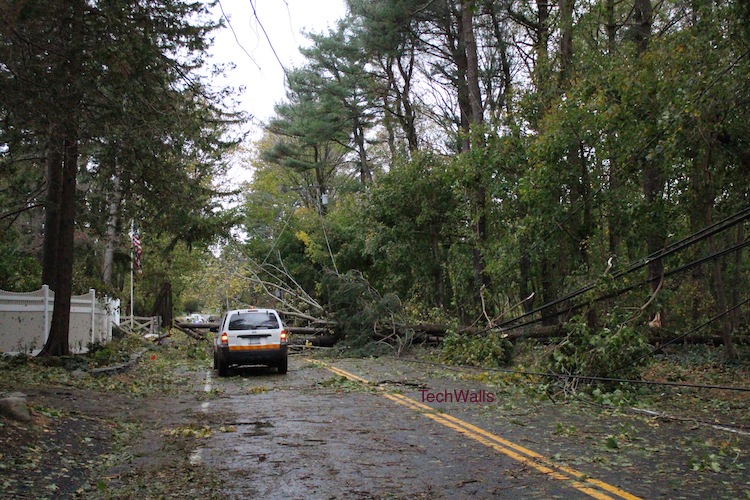The winter of 2013/14 will long be remembered for its storms, floods and power cuts. Over 650,000 buildings were affected by power cuts during this period, showing just how big an impact Mother Nature can have on our lives.
Unpredictable weather
The recent winter storms devastated parts of the UK and were the worst in living memory. St Jude’s storms produced record wind speeds of 99 miles per hour on the Isle of Wight and across the UK disruption to power supplies was unavoidable.
Many consumers were ill prepared for the consequences. The lack of power meant that some people had to go without their Christmas dinner and had to sit in cold and damp houses in the dark, unsure of what to do.
Thankfully, numerous authorities and companies were on hand to offer help and assistance. If you want to brush up on a few tips to stay safe during bad weather then this post on the npower blog – ‘Riding the storms’ – has plenty of useful information.
Climate change
Some commentators believe that the bad weather is due to the effects of pollution on the environment. Others believe that the changes to our climate are part of a natural phenomenon, similar to the Ice Age.
Whatever the answer, the storms and floods of 2013/14 have caused £1.6 billion worth of damage. All houses can be potentially affected by adverse weather and it’s a good idea to expect the unexpected. Householders should ensure that they have torches, blankets and protective clothing within easy access, should the worst happen.
Floods can affect anyone
If your house is on a flood plain, you may face additional risk from bad weather, and it’s a good idea to carry out a thorough survey before you invest in a property. Similarly if your house is on top of a hill you can be affected by strong winds.
You should be aware of the telephone number of your Electricity Distribution Company (EDC) as this will be the organisation you will need to contact should the power in your area shut down.

Check your garden for safety
The environment can also affect your garden. Make sure that garden furniture is secured, and check that your insurance policy covers fallen trees – you may be responsible if your trees fall down and damage your neighbour’s property so it’s worth keeping an eye on the situation and doing what you can to protect against accidents.
This winter’s hurricane like winds caused rail lines to be swept away and houses to tumble into the sea. You should be aware that your home will be at risk if it is built on a subsiding cliff face or in danger areas and take appropriate action.
Safety first
Sometimes there is little anyone can do in the face of nature’s ferocity. As long as you follow obvious safety precautions, and heed the advice from the authorities you should, remain safe from the worst that the weather can bring.
As well as securing your property, you should also consider how to secure your energy supply. Widespread damage wreaked havoc on people’s lives and homes this winter but the loss of power was one of the biggest blows.
While there is little you can do to stop lines from coming down, you can do your best to preserve your connection by using a reputable provider with a good customer service record.
Speak to your supplier about their services to get a better understanding of what they offer and remember to compare tariffs to find a better deal too. There’s no point paying more than you need for your energy and various suppliers including npower offer comparison services on their website.
Disclosure: We might earn commission from qualifying purchases. The commission help keep the rest of my content free, so thank you!



